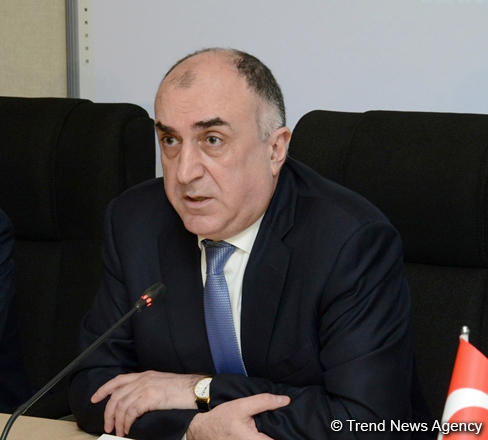Baku, Azerbaijan, Feb. 9
Trend:
The basis for the Armenia-Azerbaijan Nagorno-Karabakh conflict is the fact of military aggression and occupation, Azerbaijani Foreign Minister Elmar Mammadyarov said in an interview published in the French parliament’s "Le Journal du Parlement".
The minister stressed that aggressive separatism with terrorist actions, which began from the end of the 1980s, turned into open military aggression of Armenia against Azerbaijan after the collapse of the USSR.
"By using military force, Armenia occupied Azerbaijan’s Nagorno-Karabakh region and adjacent districts, committed ethnic cleansing,” he said. “The aggressive separatism which was not timely suppressed, as well as double standards, led to tragedy we have today.”
“Profound measures must be taken against the tendencies of separatism in Europe and they must be stopped,” he said. “A decisive and unequivocal position against all forms and manifestations of separatism must be demonstrated.”
“The continuation of Armenia's occupation of Azerbaijani territories and the presence of Armenian armed forces in the occupied Azerbaijani territories are the biggest threats to peace and security of Europe and the region,” Mammadyarov stressed. “Four resolutions of the UN Security Council, adopted in 1993, represent a strong and unequivocal position of the international community on this issue.”
"The mandate of the co-chairs of the OSCE Minsk Group, which includes France, is based on these resolutions,” he said. “To achieve progress in the political solution to the conflict, the withdrawal of Armenian troops from the occupied Azerbaijani territories must be ensured and the factor of military risk must be eliminated."
Mammadyarov stressed that as a result of the policy of ethnic cleansing committed against Azerbaijani civilians in the occupied territories, Azerbaijan experienced the greatest humanitarian tragedy in Europe after the World War II.
The conflict between the two South Caucasus countries began in 1988 when Armenia made territorial claims against Azerbaijan. As a result of the ensuing war, in 1992 Armenian armed forces occupied 20 percent of Azerbaijan, including the Nagorno-Karabakh region and seven surrounding districts.
The 1994 ceasefire agreement was followed by peace negotiations. Armenia has not yet implemented four UN Security Council resolutions on withdrawal of its armed forces from the Nagorno-Karabakh and the surrounding districts.






